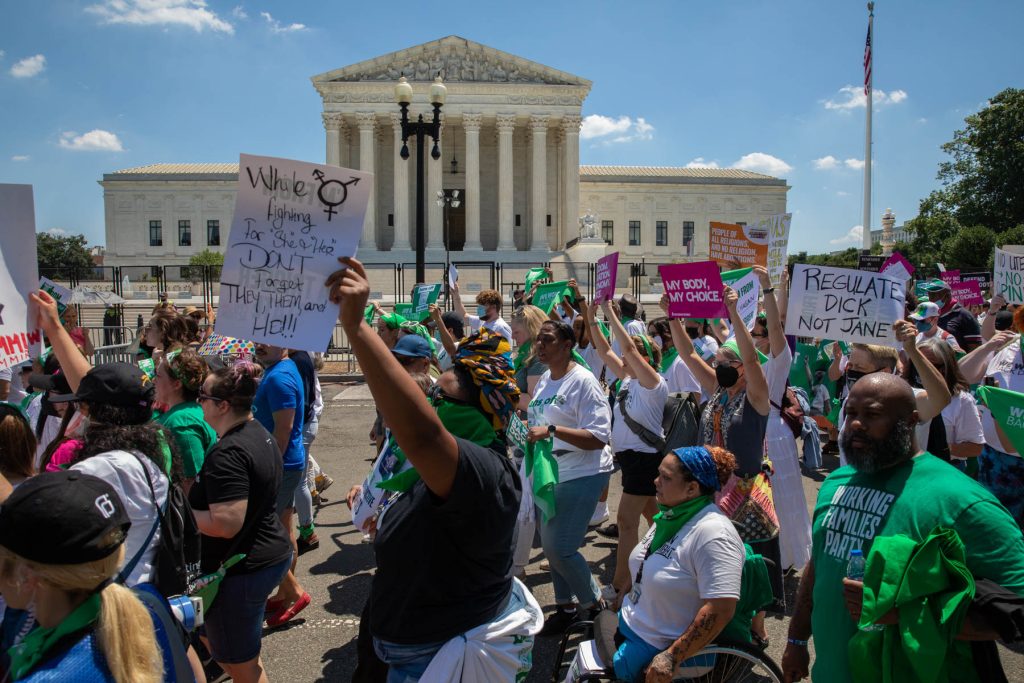On the final full day of the 2023 legislative session, the second major piece of reproductive and gender-affirming rights legislation passed the House by a 38-30 vote.
SB 13, sponsored by state Sen. Linda Lopez, D-Albuquerque, now heads to Gov. Michelle Lujan Grisham’s desk.
The Reproductive and Gender-Affirming Health Care Protection Act protects providers and patients from other states’ efforts to subpoena for provider or patient information as part of an investigation into reproductive or gender-affirming care where that activity is not protected. The bill seeks to protect reproductive and gender-affirming care patients and providers from civil or criminal liability and to protect reproductive healthcare providers from discrimination by professional licensing boards.
SB 13 is one of two reproductive and gender-affirming rights bills introduced in this legislative session. The other bill, the Reproductive and Gender-Affirming Healthcare Act, prohibits public bodies from passing ordinances that would ban or put roadblocks in front of reproductive and gender-affirming healthcare. Lujan Grisham signed it into law on Thursday. She is expected to sign SB 13 into law as well.
The bill codifies Lujan Grisham’s executive order that she made last summer within days of the U.S. Supreme Court overturning Roe v. Wade. If she signs SB 13 bill, it would ensure that those protections will continue regardless of who is governor.
The three-hour debate on the House floor centered around other states’ rights as well issues around free speech and the right of religious organizations to protest or send electronic information about their disapproval of reproductive or gender-affirming care. Republican State Rep. Stefani Lord, of Sandia Park, asked if SB 13 is intended to be “an abortion shield law?”
State Rep. Andrea Romero, D-Santa Fe, who presented the bill on the House floor, said “whatever you want to call it, yes, we affirmatively protect what’s legal here and will continue to be legal here.”
“We’re a sovereign state; we make our own laws. We’re talking about an overreach of jurisdiction in unchartered territory,” Romero said of other states attempting to criminalize or penalize abortion or gender-affirming care in other states.
State Rep. Bill Rehm, R-Albuquerque, asked if New Mexico would cooperate with a subpoena issued from another state regarding a licensed reproductive or gender-affirming care provider.
Romero said New Mexico would “not submit private information about that practice for another state seeking it.”
State Rep. Greg Nibert, R-Roswell, called the legislation a “carve out from our general notions of full faith and credit” to respond to legal orders from other states.
Romero said that reproductive and gender-affirming care is “being attacked in other states.”
State Rep. John Block, R-Alamogordo, asked what are the “specific attacks on New Mexico that have gone on that is making this a priority?”
Romero said other states, primarily Texas, are passing legislation that criminalizes and allows civil penalties against reproductive and gender-affirming care providers and those seeking the care, as well as those who help individuals seeking care. Romero said there have been more than 400 pieces of anti-LGBTQ legislation introduced this year, so far, and 15 states are restricting or considering restricting gender-affirming care access.
“That’s precisely why we need this law,” Romero said.
State Rep. Rod Montoya, R-Farmington, tried to argue that the legislation impinges on the right to free speech. Romero disagreed.
“It is about private healthcare information. It is narrowly drafted in this law. We do not touch on free speech, we’re protecting healthcare information,” Romero said.
Montoya introduced two amendments to the bill. The first would have struck a section that he said would keep individuals or entities from legally protesting or sharing electronic information that is negative towards a reproductive or gender-affirming provider or clinic.
That amendment never received a vote. House Speaker Javier Martinez, D-Albuquerque, said Montoya was out of order and referred him to the rules of the House but did not elaborate.
The House debated Montoya’s amendment for several minutes before he withdrew it and made a second attempt to amend the bill by striking the word “entity,” because he said the right of religious organizations or individuals “to say unflattering things about procedures they find morally reprehensible” was being impacted.
Romero called the amendment “very unfriendly” and said this amendment “would allow for harassment.”
The debate on the amendment went over the three-hour debate limit on the House floor, leading to a disagreement between Montoya and Martinez over Montoya’s ability to make closing remarks. Martinez said the House had closed debate, was over the three-hour debate limit and that his time had run out.
The House tabled the amendment by 43-24 vote.


















